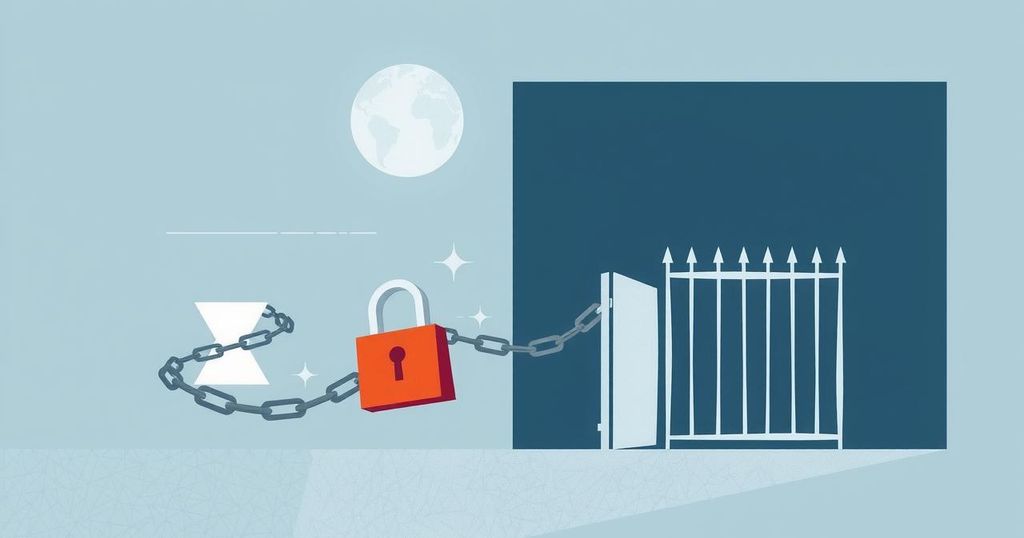Urgent Call for U.S. Engagement in Syria’s Recovery Efforts
This article discusses the urgent need for U.S. engagement in Syria by alleviating economic sanctions and providing humanitarian aid. It underscores the complexity of integrating new authorities like HTS while advocating for a comprehensive recovery strategy that involves the World Bank and the reintegration of Syrian financial institutions into global systems, addressing dire humanitarian needs, and promoting long-term stability.
The United Nations envoy to Syria, Geir Pedersen, faced public outcry upon visiting Sednaya prison, exemplifying the deep frustrations over global inaction during Syria’s crisis. Amid opportunities for positive change, the international community’s slow response undermines essential support for the Syrian populace. The U.S. must address the urgent humanitarian needs while disentangling legal restrictions that obstruct recovery efforts, which are imperative as many Syrians face extreme hardship from years of war and economic collapse.
The U.S. must not condition its engagement on recognizing new authorities like Hayat Tahrir al-Sham (HTS), formerly al-Qaeda-linked. As the Assad regime has fallen, favorable opportunities exist to aid Syrians without requiring a formal government. Syrians have suffered long enough; maintaining economic sanctions punishes innocent civilians for a regime they did not choose, complicating recovery efforts in a shattered economy where poverty continues to escalate.
Humanitarian aid must escalate, as last year’s funding fell critically short. Yet, emergency assistance cannot remedy the extensive damage to Syria’s economy, worsened by sanctions. Effective reconstruction necessitates a comprehensive, strategic approach to revitalize various sectors, combat poverty, and facilitate the return of millions of refugees to deteriorated living conditions, thus preventing further internal displacement and sectarian conflict.
To enable economic recovery, the United States should pursue specific action steps: first, provide clear legal guidelines and sanctions relief to enhance access to humanitarian aid and commerce. A recent license permitting transactions with the transitional government is insufficient; broader authority is essential to facilitate investments and development endeavors.
Second, the United States should advocate for restoring World Bank programs in Syria, urgently addressing fundamental services like health and education. Leveraging its position as a leading World Bank member, the U.S. can support immediate initiatives that empower civil society and provide essential salaries to healthcare and education personnel, helping restore critical public services.
Lastly, the U.S. must establish a realistic pathway for Syria’s financial institutions to reconnect with the global economy. Without integration into international financial systems, efforts toward lasting recovery will be contracted, necessitating independent assessments of the Syrian financial landscape and adherence to global standards to promote legitimate investment.
The ongoing crisis in Syria has resulted in devastating humanitarian consequences, exacerbated by years of conflict and subsequent economic sanctions. The plight of ordinary Syrians has drawn international attention, yet meaningful engagement from foreign governments remains inadequate. This article emphasizes the critical errors of maintaining the status quo and outlines necessary steps to reintegrate Syria into the global economy while acknowledging the complex political landscape following the fall of the Assad regime.
To address the dire situation in Syria, the U.S. must act decisively by alleviating sanctions and facilitating humanitarian aid across the country. By endorsing World Bank programs and aiding essential services, the U.S. can lay a foundation for sustainable recovery. Furthermore, promoting the reintegration of Syrian financial institutions into the global economy will bolster political stability while preventing further crises that threaten both national and regional security.
Original Source: foreignpolicy.com




Post Comment